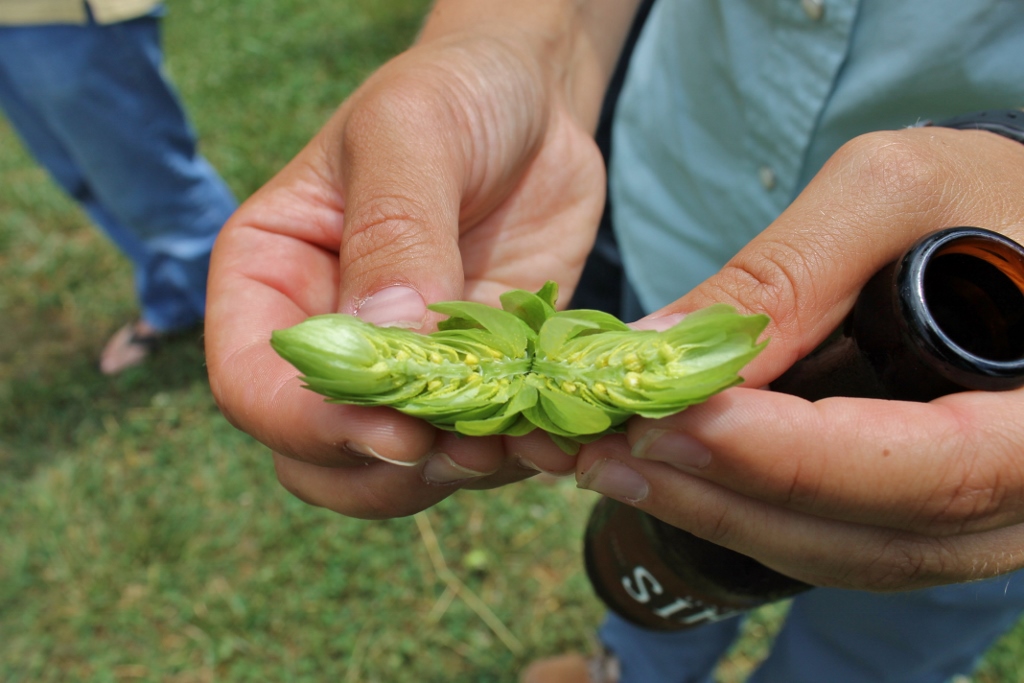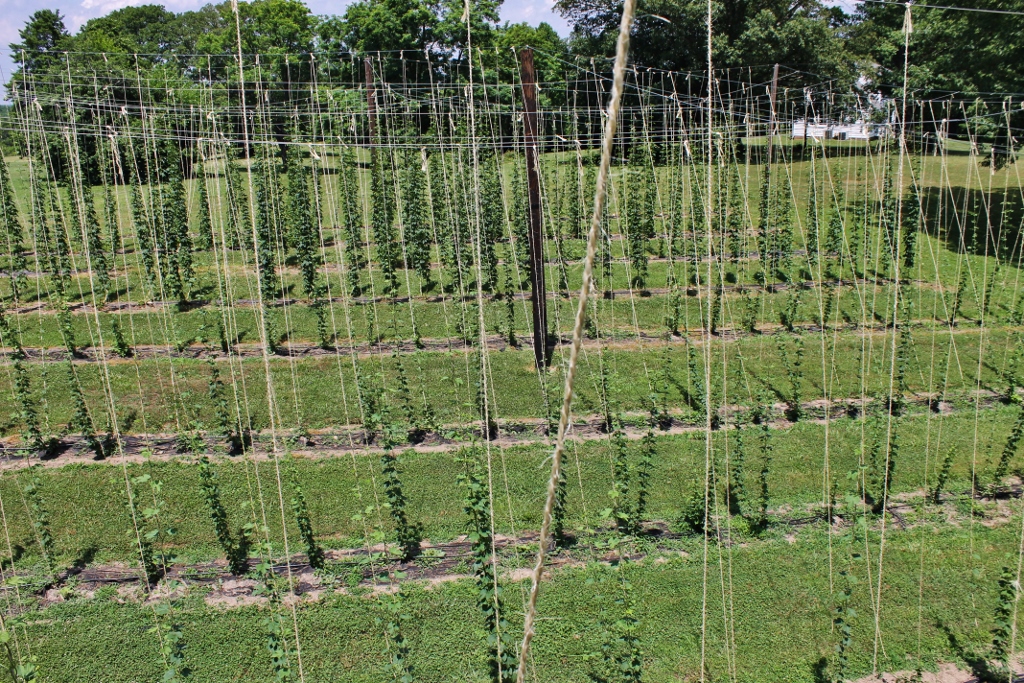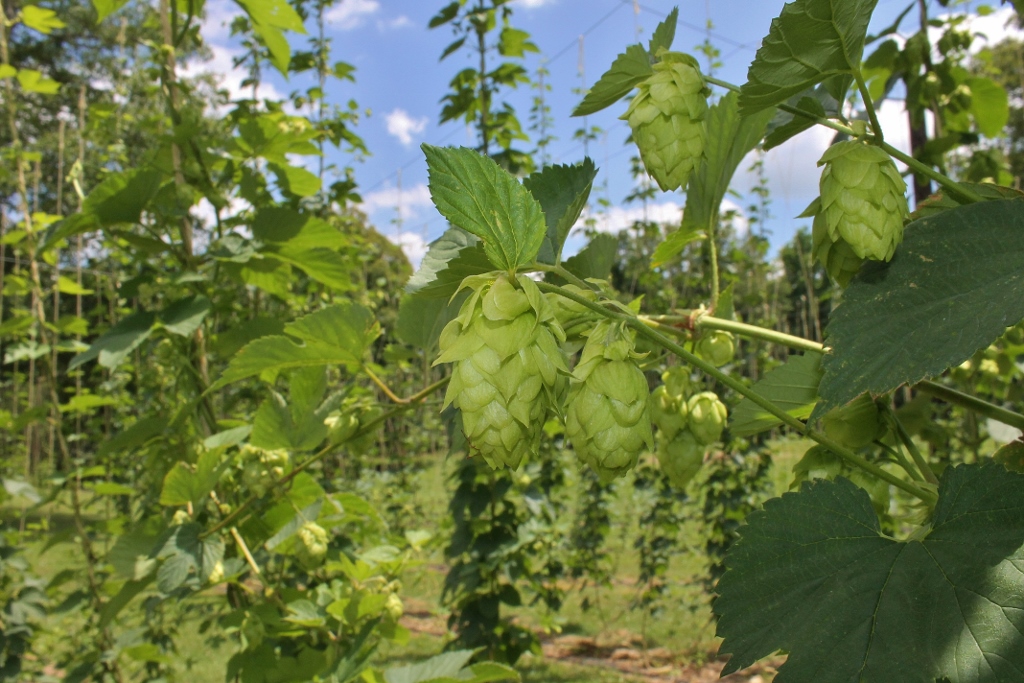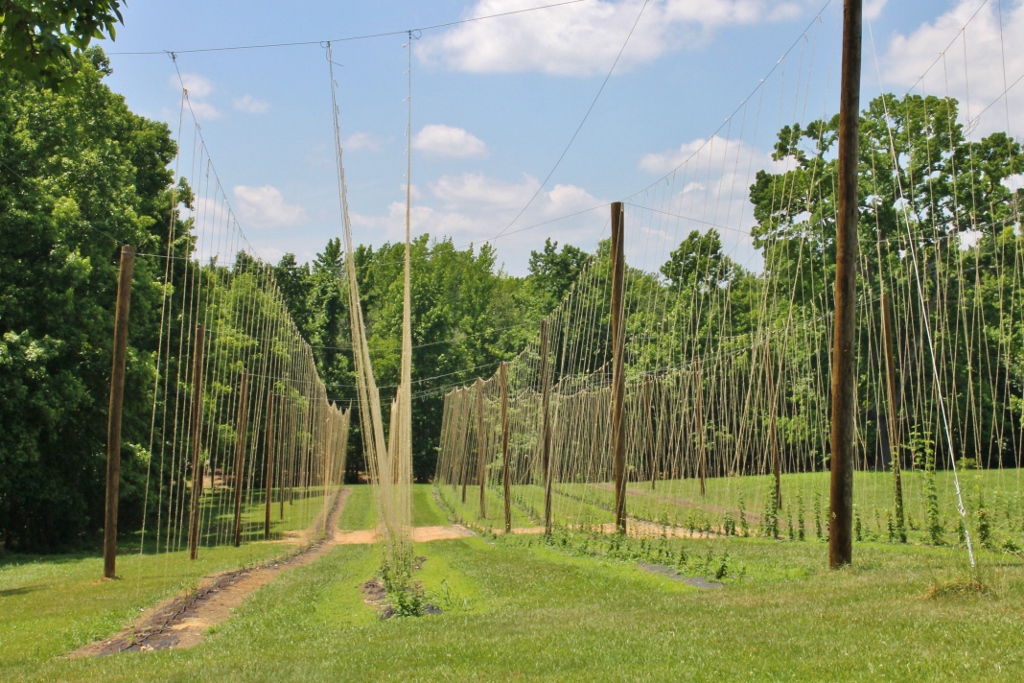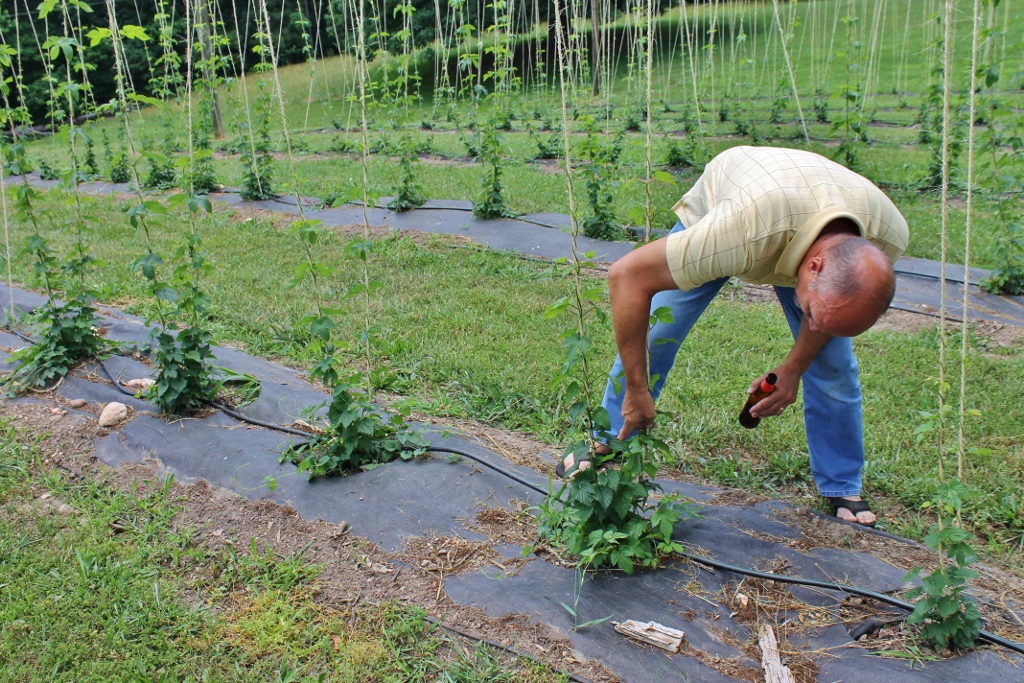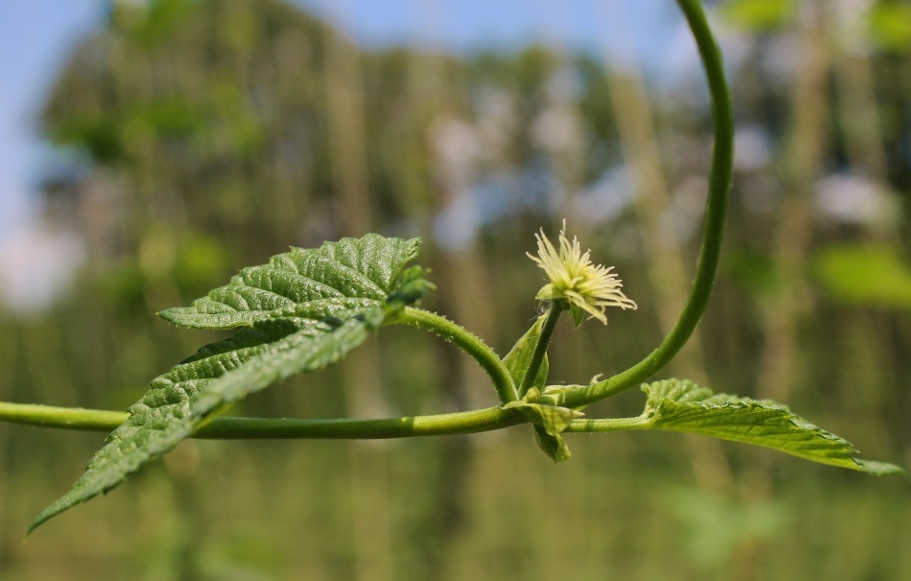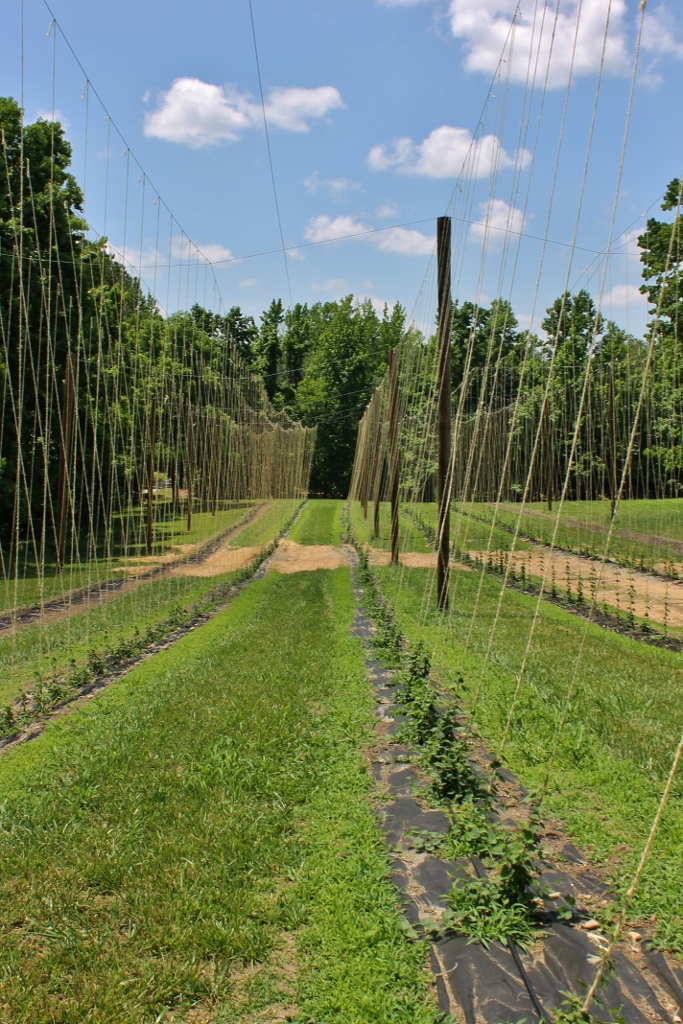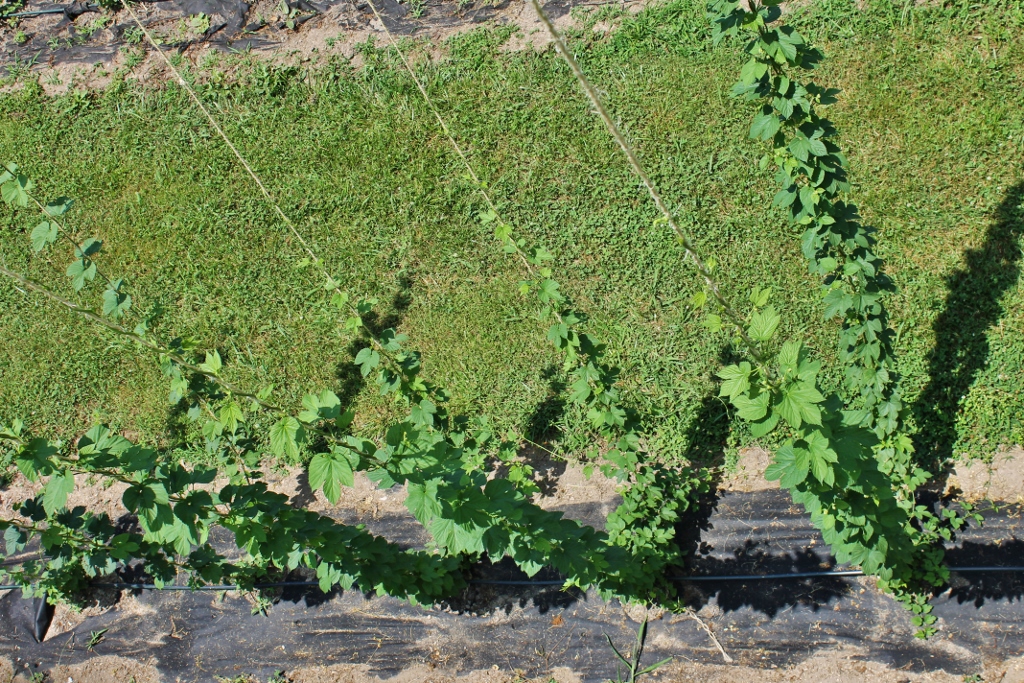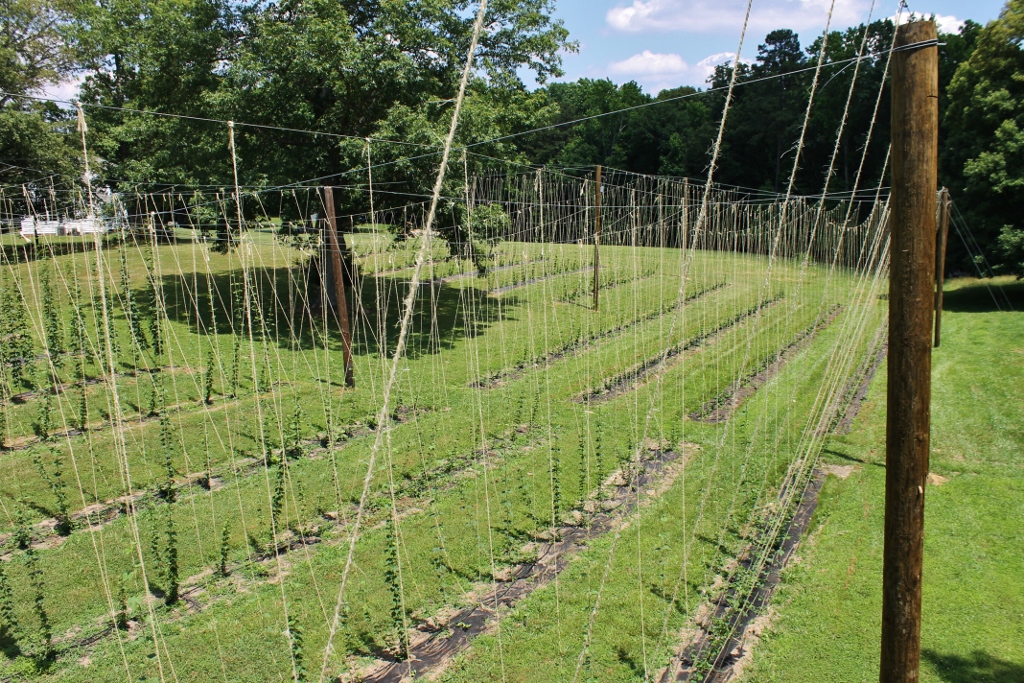Last year, we posted a story about Huguenot Hops in Chesterfield County, run by business partners Devon Kistler and Kurt Stanfield. Click on the original story here to read about the background of this operation and learn more about how hops are grown.
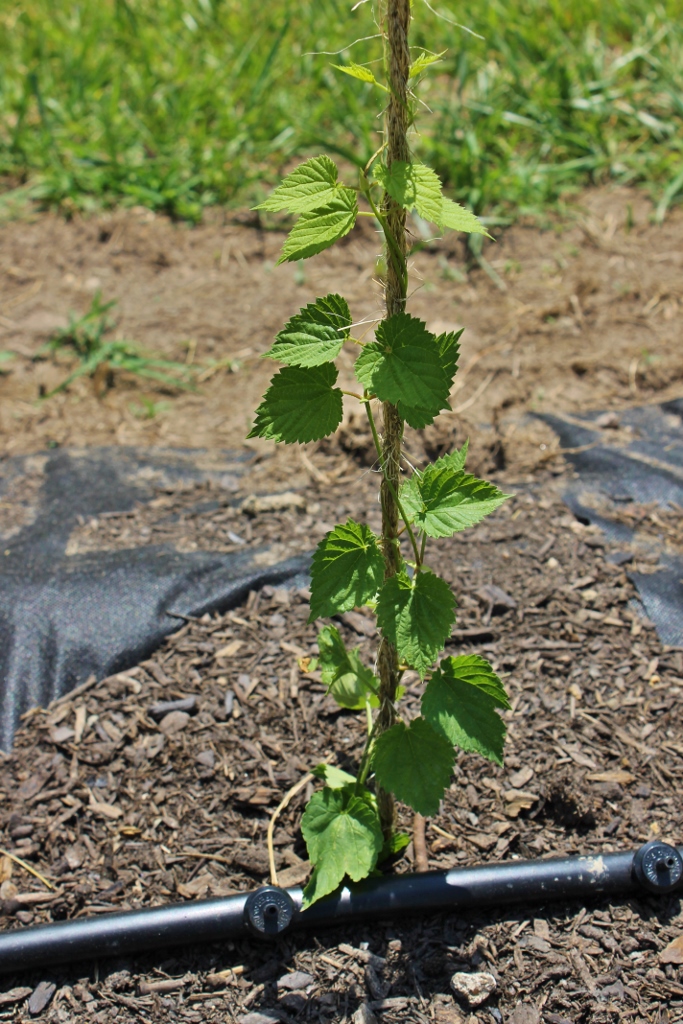 Virginia may not top the charts as a hops-producing state, but a rising number of growers have kick-started a movement to increase the availability of locally-grown hops to the burgeoning craft beer industry. Huguenot Hops is a trailblazer in this effort, expanding in size this spring to become one of the largest hop yards in the region. With the increased acreage comes more trellises to build, more bines to train, more weeds to control, and more cones to pick, but Devon and Kurt are committed to their work and passionate about quality.
Virginia may not top the charts as a hops-producing state, but a rising number of growers have kick-started a movement to increase the availability of locally-grown hops to the burgeoning craft beer industry. Huguenot Hops is a trailblazer in this effort, expanding in size this spring to become one of the largest hop yards in the region. With the increased acreage comes more trellises to build, more bines to train, more weeds to control, and more cones to pick, but Devon and Kurt are committed to their work and passionate about quality.
We visited the operation recently to see the yard expansion and compare the upcoming harvest to what we saw in 2013.
How much has your operation expanded since we first visited you in 2013?
Last year we had 70 plants. This year we have 1200 plants on 1.25 acres. Our plan is to expand to 2600 plants on 3 acres in the next couple of years.
Which varieties of hops are you growing?
Last year was just Cascade. This year we added Nugget and Zeus. We plan to add more varieties in 2015.
How is the 2014 hops season going so far?
Because of the weather, the second year plants were ready for harvest a month earlier than we expected. However, we were able to sell the hops to Alewerks. Also, we have learned how to combat Japanese Beetles and two-spotted spider mites.
Did you learn anything from 2013 that motivated you to make changes going into this 2014 season?
Yes! We have a completely new trellis system and automated drip irrigation system. Also, there are fewer rows in between poles. One of the more significant improvements was running liquid fertilizer through the drip irrigation … fertigation rocks!
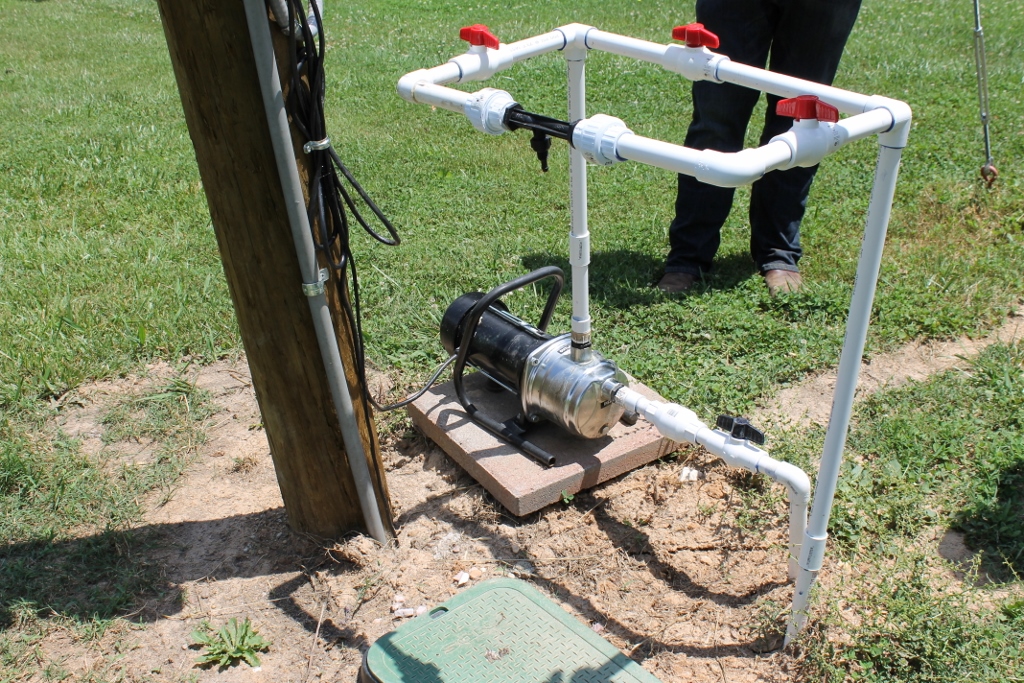 Any there any new practices you are trying in 2014?
Any there any new practices you are trying in 2014?
We did hops testing last year and are continuing that practice this year. Same with soil testing. Although we had soil testing completed by another entity we also had some done at VT. As I said before, fertigation rocks! We still need to better understand quantities to put down.
What is your outlook on your grower organization, Old Dominion Hops Cooperative, and the Virginia industry as a whole?
The Co-Op is gaining a lot of participation from new farmers and combining forces with hop growers in North Carolina. We expect there will be more changes in the Co-Op in the next year as new leadership is elected and groups are created to support specific functions of the Co-Op. I think brewers are a lot more aware of Virginia-grown hops than they were a year ago and they are willing to come out to farms and eventually buy local hops. However, the door is not going to open a lot more for sales of local hops until we have the ability to pelletize and professionally package hops at a location that is central to the majority of hop growers.
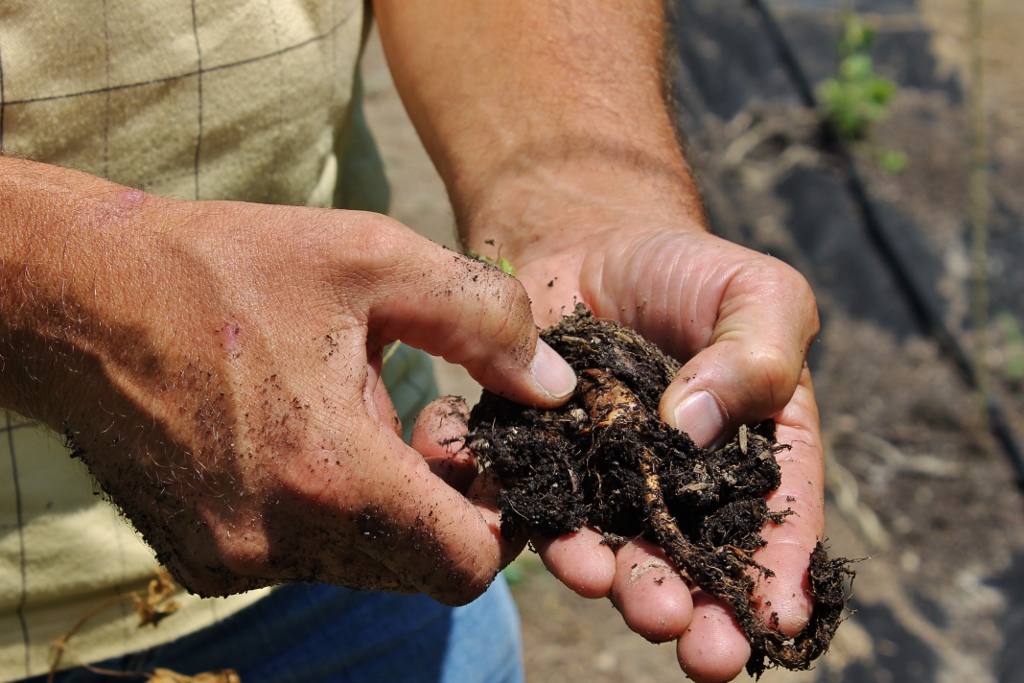
Devon Kistler holds a rhizome he pulled up from one of his plants. Left to their own devices, hops spread through the underground growth of rhizomes, and some industry suppliers collect and sell high-quality rhizomes that can be used to start a new yard or add more plants to an existing one.
What has been your biggest challenge so far in this business?
Time spent weeding 1.25 acres. However, Kurt has a new system with a flamethrower and weed eater that could be our golden ticket.
Do you have any successes you’d like to share?
With some help from David at Piedmont Hops we have clippings from this spring that are currently 10 feet tall and producing burrs. This really helps expand the yard and helps keep costs down. Also, the early sale of 50 pounds to Alewerks is a pretty nice success.
________________________________________________________
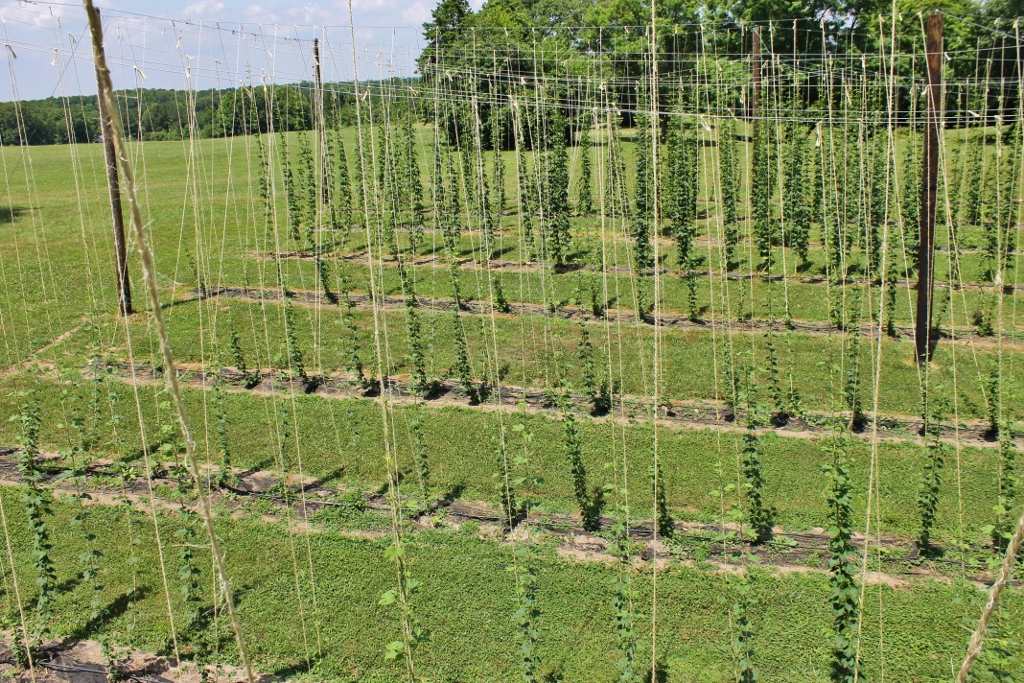 In addition to working with Alewerks and Hardywood, Devon and Kurt have literally brought their hops to the table, providing early-spring shoots from their plants to The Tobacco Company Restaurant in Richmond for a dish made with espresso-rubbed veal and allagash white ale cream. Furthermore, Huguenot Hops was recently featured in “The Beer Guy” column in the Richmond Times-Dispatch. Devon and Kurt will also make an appearance in an upcoming documentary about the brewing industry, From Grain to Growler, alongside several fellow growers.
In addition to working with Alewerks and Hardywood, Devon and Kurt have literally brought their hops to the table, providing early-spring shoots from their plants to The Tobacco Company Restaurant in Richmond for a dish made with espresso-rubbed veal and allagash white ale cream. Furthermore, Huguenot Hops was recently featured in “The Beer Guy” column in the Richmond Times-Dispatch. Devon and Kurt will also make an appearance in an upcoming documentary about the brewing industry, From Grain to Growler, alongside several fellow growers.
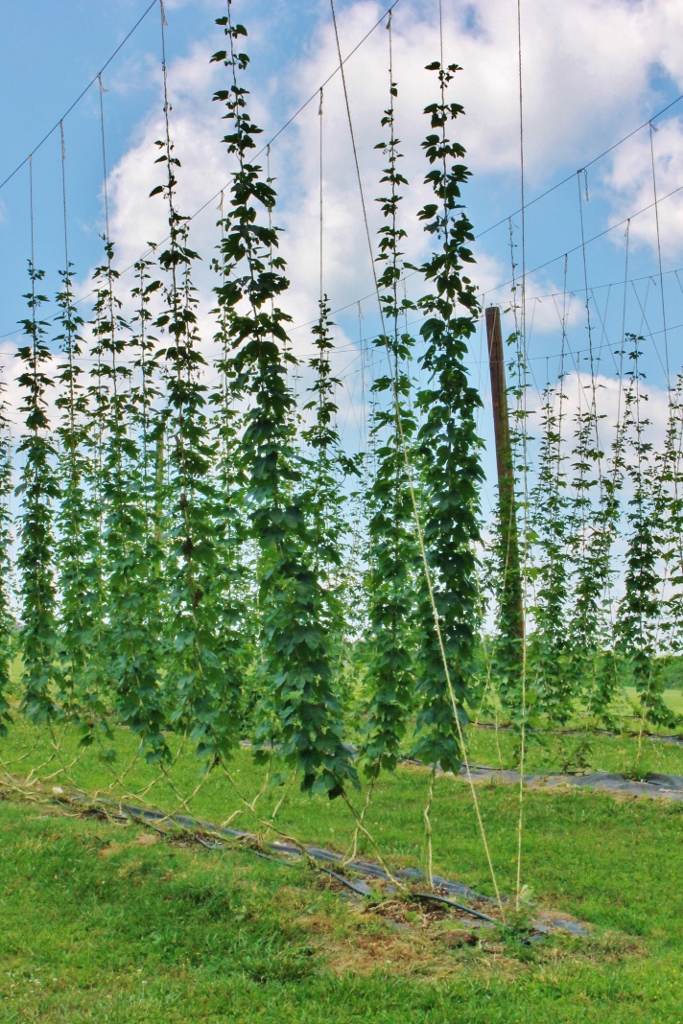 Huguenot Hops utilizes the support and resources offered by Virginia Cooperative Extension and their county agricultural agent in Chesterfield, Mike Likins. Although North Carolina State University is the regional leader in hops research, Extension resources for Virginia hops growers are expanding. The soil testing lab at Virginia Tech now has a crop code for hops so that growers can get accurate fertilizer recommendations for their yards, and the university has also initiated a hops testing service that will facilitate hop marketing and inform brewers about the levels of alpha acids and other compounds in their purchased hop cones. Virginia Cooperative Extension’s county agricultural agents work with Kurt, Devon, and other growers around the state with insect and disease identification, pest control recommendations, and crop management recommendations.
Huguenot Hops utilizes the support and resources offered by Virginia Cooperative Extension and their county agricultural agent in Chesterfield, Mike Likins. Although North Carolina State University is the regional leader in hops research, Extension resources for Virginia hops growers are expanding. The soil testing lab at Virginia Tech now has a crop code for hops so that growers can get accurate fertilizer recommendations for their yards, and the university has also initiated a hops testing service that will facilitate hop marketing and inform brewers about the levels of alpha acids and other compounds in their purchased hop cones. Virginia Cooperative Extension’s county agricultural agents work with Kurt, Devon, and other growers around the state with insect and disease identification, pest control recommendations, and crop management recommendations.
Additional Resource for Readers:
Huguenot Hops Webpage
Huguenot Hops Facebook page
Old Dominion Hops Cooperative
North Carolina Hops Project
The Beer Guy article in the Times-Dispatch about Virginia hops
From Grain to Growler Documentary
Virginia Cooperative Extension – Chesterfield County (find your local office and agents here)

